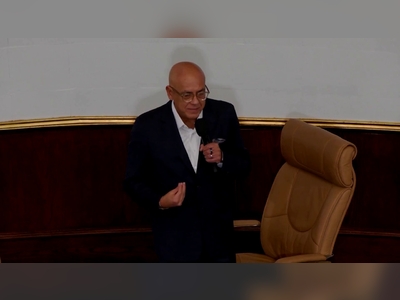
US Judge Blocks New York’s Social Media Law Targeting Hate Speech, Cites First Amendment Concerns
A federal judge recently issued a preliminary injunction against a New York state law that implicates hate speech, saying it violates Americans’ constitutionally-protected First Amendment rights.
New York General Business Law Section 394-ccc, also referred to as the Hateful Conduct Law, came into effect on Dec. 3, 2022. It compels platforms to “provide and maintain mechanisms for reporting hateful conduct on their platform.” It also empowers New York’s attorney general to assess a fine of up to $1,000 per day on platforms that don’t comply.
U.S. District Judge Andrew Carter on Feb. 14 blocked the law’s enforcement, pending final judgment in a lawsuit. He determined that the plaintiffs have shown a “likelihood of success” in striking down the law, based on their allegation that the law is unconstitutional under the First Amendment to the U.S. Constitution.
UCLA Law Professor Eugene Volokh and co-plaintiffs—video streaming platform Rumble Canada and creator crowdfunding site Locals Technology—on Dec. 1, 2022, sued New York state in a federal lawsuit, alleging the New York law is illegal and in violation of the U.S. Constitution’s First and Fourteenth Amendments, which protect free speech and due process.
In his ruling on Feb. 14, Carter, an Obama appointee, determined that the Hateful Conduct Law is “clearly aimed at regulating speech” and “fundamentally implicates the speech of the networks’ users by mandating a policy and mechanism by which users can complain about other users’ protected speech.”
“[T]he First Amendment protects individuals’ right to engage in hate speech, and the state cannot try to inhibit that right, no matter how unseemly or offensive that speech may be to the general public or the state,” Carter added.
He said that the Hateful Conduct Law’s targeting of certain speech as the state defines it—that which tends to “vilify, humiliate, or incite violence” based on their “race, color, religion, ethnicity, national origin, disability, sex, sexual orientation, gender identity or gender expression”—”clearly implicates the protected speech of social media users.”
“This could have a profound chilling effect on social media users and their protected freedom of expression,” Carter wrote. “Even though the law does not require social media networks to remove ‘hateful conduct’ from their websites and does not impose liability on users for engaging in ‘hateful conduct,’ the state’s targeting and singling out of this type of speech for special measures certainly could make social media users wary about the types of speech they feel free to engage in without facing consequences from the state.”
New York Gov. Kathy Hochul subsequently directed Attorney General Letitia James to probe the role of social media platforms in broadcasting the shooting, after which James issued a report that concluded the Buffalo shooter had been “radicalized” by social media platforms. The report also said that “[o]nline platforms should be held accountable for allowing hateful and dangerous content to spread on their platforms.”
“Although preventing and reducing the instances of hate-fueled mass shootings is certainly a compelling governmental interest, the law is not narrowly tailored toward that end,” Carter wrote in his ruling on Feb. 14. “Banning conduct that incites violence is not protected by the First Amendment, but this law goes far beyond that.”
He added: “While the [Office of the Attorney General] Investigative Report does make a link between misinformation on the internet and the radicalization of the Buffalo mass shooter … even if the law was truly aimed at reducing the instances of hate-fueled mass shootings, the law is not narrowly tailored toward reaching that goal.
“It is unclear what, if any, effect a mechanism that allows users to report hateful conduct on social media networks would have on reducing mass shootings, especially when the law does not even require that social media networks affirmatively respond to any complaints of ‘hateful conduct.’ In other words, it is hard to see how the law really changes the status quo—where some social media networks choose to identify and remove hateful content and others do not.”
“It is not clear what the terms like ‘vilify’ and ‘humiliate’ mean for the purposes of the law. While it is true that there are readily accessible dictionary definitions of those words, the law does not define what type of ‘conduct’ or ‘speech’ could be encapsulated by them,” according to Carter.
“For example, could a post using the hashtag ‘BlackLivesMatter’ or ‘BlueLivesMatter’ be considered ‘hateful conduct’ under the law?
“Likewise, could social media posts expressing anti-American views be considered conduct that humiliates or vilifies a group based on national origin? It is not clear from the face of the text, and thus the law does not put social media users on notice of what kinds of speech or content is now the target of government regulation.”
The Foundation for Individual Rights and Expression (FIRE), which is representing the plaintiffs, celebrated Carter’s decision.
“For decades, courts have been very clear: States cannot burden the free exchange of ideas, regardless of the ideas’ perceived morality or merit,” FIRE attorney Jay Diaz said in a statement. “What happened in Buffalo broke the nation’s heart, and we are thankful that the killer is being brought to justice. But, as the court recognized, violating expressive rights online won’t make us safer.”
“New York’s vague and overbroad law sought to stifle robust debate on the internet,” FIRE attorney Daniel Ortner said in a statement. He said Carter’s decision was “a victory for the First Amendment that should be celebrated by everyone who hopes to see the internet continue as a place where even difficult and contentious issues can be debated and discussed freely.”
Volokh said in a statement: “New York tried to single out particular ideological viewpoints by requiring me and other platform operators to have policies for dealing with those viewpoints.
“That’s just as unconstitutional as the government targeting ‘unpatriotic’ speech or anti-police speech or whatever else. I’m grateful that this decision makes clear that such viewpoint-based attempts at government regulation are unconstitutional.”
U.S. District Judge Andrew Carter on Feb. 14 blocked the law’s enforcement, pending final judgment in a lawsuit. He determined that the plaintiffs have shown a “likelihood of success” in striking down the law, based on their allegation that the law is unconstitutional under the First Amendment to the U.S. Constitution.
UCLA Law Professor Eugene Volokh and co-plaintiffs—video streaming platform Rumble Canada and creator crowdfunding site Locals Technology—on Dec. 1, 2022, sued New York state in a federal lawsuit, alleging the New York law is illegal and in violation of the U.S. Constitution’s First and Fourteenth Amendments, which protect free speech and due process.
In his ruling on Feb. 14, Carter, an Obama appointee, determined that the Hateful Conduct Law is “clearly aimed at regulating speech” and “fundamentally implicates the speech of the networks’ users by mandating a policy and mechanism by which users can complain about other users’ protected speech.”
“[T]he First Amendment protects individuals’ right to engage in hate speech, and the state cannot try to inhibit that right, no matter how unseemly or offensive that speech may be to the general public or the state,” Carter added.
He said that the Hateful Conduct Law’s targeting of certain speech as the state defines it—that which tends to “vilify, humiliate, or incite violence” based on their “race, color, religion, ethnicity, national origin, disability, sex, sexual orientation, gender identity or gender expression”—”clearly implicates the protected speech of social media users.”
“This could have a profound chilling effect on social media users and their protected freedom of expression,” Carter wrote. “Even though the law does not require social media networks to remove ‘hateful conduct’ from their websites and does not impose liability on users for engaging in ‘hateful conduct,’ the state’s targeting and singling out of this type of speech for special measures certainly could make social media users wary about the types of speech they feel free to engage in without facing consequences from the state.”
Law Passed in Wake of Buffalo Shooting
The law was passed by New York’s legislature in June 2022 after a mass shooting in Buffalo in May 2022 that killed 10 black people. The shooting was live-streamed by the killer on the social media platform Twitch.New York Gov. Kathy Hochul subsequently directed Attorney General Letitia James to probe the role of social media platforms in broadcasting the shooting, after which James issued a report that concluded the Buffalo shooter had been “radicalized” by social media platforms. The report also said that “[o]nline platforms should be held accountable for allowing hateful and dangerous content to spread on their platforms.”
“Although preventing and reducing the instances of hate-fueled mass shootings is certainly a compelling governmental interest, the law is not narrowly tailored toward that end,” Carter wrote in his ruling on Feb. 14. “Banning conduct that incites violence is not protected by the First Amendment, but this law goes far beyond that.”
He added: “While the [Office of the Attorney General] Investigative Report does make a link between misinformation on the internet and the radicalization of the Buffalo mass shooter … even if the law was truly aimed at reducing the instances of hate-fueled mass shootings, the law is not narrowly tailored toward reaching that goal.
“It is unclear what, if any, effect a mechanism that allows users to report hateful conduct on social media networks would have on reducing mass shootings, especially when the law does not even require that social media networks affirmatively respond to any complaints of ‘hateful conduct.’ In other words, it is hard to see how the law really changes the status quo—where some social media networks choose to identify and remove hateful content and others do not.”
‘Not Clear’
Carter noted that the law uses vague terms, which exacerbates its chilling effect.“It is not clear what the terms like ‘vilify’ and ‘humiliate’ mean for the purposes of the law. While it is true that there are readily accessible dictionary definitions of those words, the law does not define what type of ‘conduct’ or ‘speech’ could be encapsulated by them,” according to Carter.
“For example, could a post using the hashtag ‘BlackLivesMatter’ or ‘BlueLivesMatter’ be considered ‘hateful conduct’ under the law?
“Likewise, could social media posts expressing anti-American views be considered conduct that humiliates or vilifies a group based on national origin? It is not clear from the face of the text, and thus the law does not put social media users on notice of what kinds of speech or content is now the target of government regulation.”
The Foundation for Individual Rights and Expression (FIRE), which is representing the plaintiffs, celebrated Carter’s decision.
“For decades, courts have been very clear: States cannot burden the free exchange of ideas, regardless of the ideas’ perceived morality or merit,” FIRE attorney Jay Diaz said in a statement. “What happened in Buffalo broke the nation’s heart, and we are thankful that the killer is being brought to justice. But, as the court recognized, violating expressive rights online won’t make us safer.”
“New York’s vague and overbroad law sought to stifle robust debate on the internet,” FIRE attorney Daniel Ortner said in a statement. He said Carter’s decision was “a victory for the First Amendment that should be celebrated by everyone who hopes to see the internet continue as a place where even difficult and contentious issues can be debated and discussed freely.”
Volokh said in a statement: “New York tried to single out particular ideological viewpoints by requiring me and other platform operators to have policies for dealing with those viewpoints.
“That’s just as unconstitutional as the government targeting ‘unpatriotic’ speech or anti-police speech or whatever else. I’m grateful that this decision makes clear that such viewpoint-based attempts at government regulation are unconstitutional.”












That's Hate Speech. Clown World
But if you "Love" the New World Order then they will say the New World Order exist.
That's not hate speech